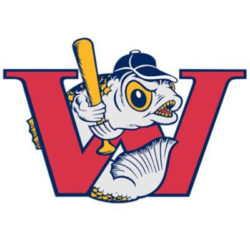 Winnipeg Goldeyes owner Sam Katz and the city are at odds over a proposed new lease for Shaw Park, as Winnipeg officials seek a new base lease rate and additional parking revenues.
Winnipeg Goldeyes owner Sam Katz and the city are at odds over a proposed new lease for Shaw Park, as Winnipeg officials seek a new base lease rate and additional parking revenues.
Shaw Park was a cornerstone of a downtown Winnipeg renaissance, bridging the traditional business core with the now-popular Forks community area. At the time the original 1998 agreement for the $20-million ballpark reflects the risk Katz, an entertainment entrepreneur, and his partners were taking in launching a ballpark in downtown Winnipeg. (All costs in this article are in Canadian dollars.) Katz and his investors put $12 million toward the ballpark construction, with provincial and federal governments contributing $3 million each and the city $2 million. Since the ballpark opened the Goldeyes have paid maintenance and operating costs for Shaw Park, as well as covering property and business taxes (albeit with rebates based on availability for youth and community events). The team also received rebates on entertainment taxes on ticket sales, as do other pro (NHL and CFL) teams in Winnipeg, but Katz says those rebates don’t cover the total amount of property and business taxes.
The original ballpark deal, arguably, was made possible not necessarily by these government contributions bur rather through the agreement and the city for the land underneath. The team pays $1 a year for the land and received revenue, funneled through a nonprofit controlled by the team, from city-owned parking lots near the ballpark. That revenue provided steady cash flow to the team, and the $1/year lease cut the upfront costs for building Shaw Park.
With the original 25-year lease set to expire July 27, 2023, the city and Katz–who was later elected mayor of Winnipeg, serving a decade in that post–are miles apart on the terms of a new 15-year lease. Katz wants to see the same terms of the original deal extended, while the city wants to see $150,000 annually for the land lease and a return of revenues from the city-owned lots, which now totals $375,000 annually. The issue is whether the team is paying fair-market rates for the ballpark site. Now a prime piece of real estate on the Red River–made prime partly due to the success of the team–the Shaw Park area could be generating much more revenue for the city than what it receives. From the Winnipeg Free Press:
Council has a policy that leases with for-profit organizations and businesses should be based on market values. The land is considered prime real estate — in the heart of downtown, adjacent to the Red River — and would be worth a small fortune, certainly more than $1 annually, if developed for commercial purposes.
The report states that the rather than do a deal with Riverside Park Management, a new lease should be signed with the entity that owns the team, Winnipeg Goldeyes Baseball Club Inc.
The proposed new lease is for a 15-year term with options for two five-year extensions. Extensions would depend on a further review of the lease terms. The city also wants to have the right to allow the lease to expire upon termination, with one year’s notice — a provision Katz opposes.
Talks will continue over the parameters of a lease extension.
The Goldeyes date back to the second year of the independent Northern League, 1994 — replacing the Rochester Aces in the league lineup — and spent their first five seasons at Winnipeg Stadium.
